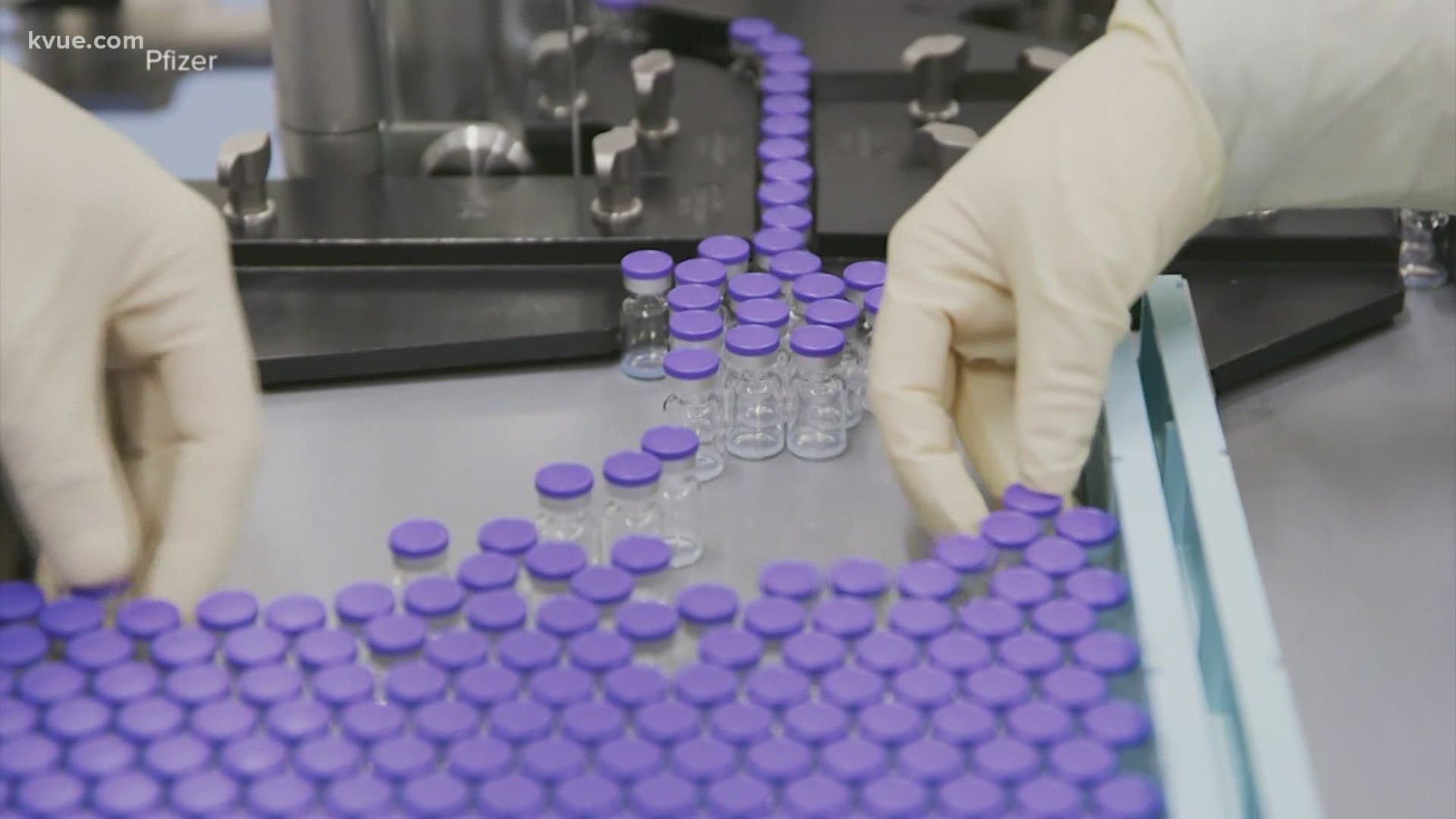AUSTIN, Texas — A day after the Food and Drug Administration authorized Pfizer's COVID-19 vaccine for emergency use, doctors across Texas agree this is the beginning of the end of the coronavirus pandemic.
"It's going to take us a little while because we have a lot of individuals to immunize, but yes, this is the the light at the end of the tunnel," Dr. David Lakey, a member of the Expert Vaccine Allocation Panel, said. "Once we can start getting people immunized and get them the immunity and the protection they need to protect themselves, you start having enough people that are immunized or had natural infection that the virus can no longer be transmitted to another person that hasn't been."
A notable difference, the FDA has given Emergency Use Authorization, not full-on approval, for the COVID-19 vaccine.
"A full approval is going to usually take two or three years, where many, many people have been studied for a longer period of time," Dr. Diana Fite, president of the Texas Medical Association, said. "That's just not practical right now with this pandemic."
In a poll, many people are not totally confident in the vaccine because of how quickly it was developed, despite the current backing of the FDA, CDC and health leaders. Some of those people don't plan to get vaccinated straight away.
"Something like the flu – which people can get very, very sick from that too – the coronavirus just has that extra degree of problems that you do want to avoid," Fite said.
Texas leaders say thousands of doses will arrive and be shipped across Texas in the coming days. Doctors said this initial dosage is not for those who have already had COVID-19, but for those that don't currently have antibodies.
"If someone's had the virus fairly recently within the last few months, they can just wait until the regular population gets vaccinated," Fite said.
One concern doctors have is not knowing how long antibodies for COVID-19 last. Vaccines typically provide enough of a virus or illness for the body to create a defense. Because COVID-19 is new, doctors still need to look closely at how antibodies created because of the vaccine fare compared to those created after somebody has already contracted and beaten the disease.
RELATED: VERIFY: Allergic reactions from COVID-19 vaccines in the UK, and what that means for the US
"We won't be doing blood tests on them beforehand to see if they've been infected in the past," Lakey said. "There are a large number of people that didn't know they had infection. "They, just the health care workers, just need to go ahead and get immunized."
Health care and frontline workers will be some of the first to receive the vaccine. Travis County will receive more than 13,000 doses in the initial allocation. Lakey estimates Texas will receive 1.4 million doses by the end of the month.
PEOPLE ARE ALSO READING:

